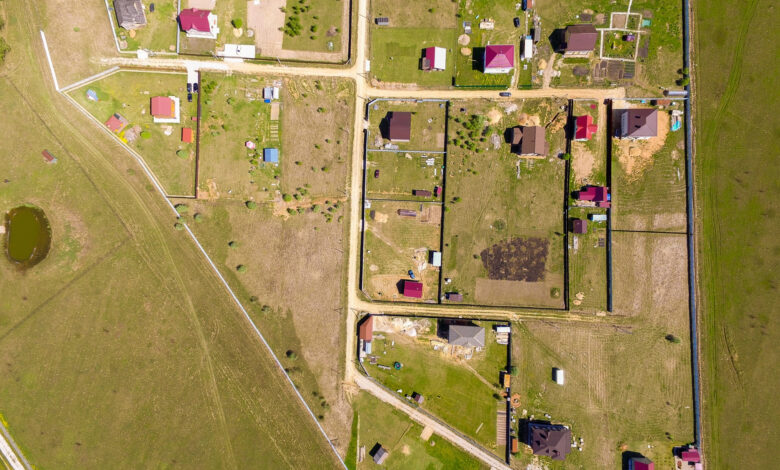Understanding Land Sizes in Nigeria

Understanding land sizes in Nigeria is crucial for anyone looking to buy, sell, or develop property. Whether you’re a prospective homeowner, a real estate investor, or a developer, having a clear grasp of land measurements can save you time, money, and legal hassles. In this article, we’ll dive into the intricacies of land sizes and measurements in Nigeria, exploring everything from traditional methods to modern practices, and providing practical tips along the way.
Historical Context of Land Measurement in Nigeria
In the past, land measurement in Nigeria was done using traditional methods. Local communities often used natural landmarks, such as trees, rivers, and hills, to demarcate land boundaries. These methods, while functional for small, rural communities, lacked precision and could lead to disputes.
With the advent of colonial rule and the subsequent introduction of Western surveying techniques, land measurement in Nigeria began to standardize. Today, land is measured using modern tools and standardized units, ensuring accuracy and consistency across the board.
Standard Units of Land Measurement in Nigeria
Hectares
A hectare is one of the most commonly used units of land measurement in Nigeria. One hectare equals 10,000 square meters or approximately 2.47 acres. Hectares are often used for large plots of land, especially in agricultural and commercial contexts.
Acres
An acre is another widely used unit of land measurement. One acre equals 4,046.86 square meters or about 0.405 hectares. Acres are commonly used in both rural and urban areas for measuring residential and agricultural land.
Square Meters
Square meters are the standard unit for smaller plots of land, especially in urban areas. This unit allows for precise measurement and is used in real estate transactions and construction planning.
Square Kilometers
For very large land areas, such as national parks and large agricultural estates, square kilometers are used. One square kilometer equals 1,000,000 square meters or 100 hectares.
Plot of Land Size in Nigeria
The standard size of a plot of land in Nigeria is typically 60 feet by 120 feet (18 meters by 36 meters), which equates to approximately 648 square meters. However, this can vary significantly based on location and intended use. In urban areas, plots might be smaller due to higher land demand, while rural plots can be much larger.
Dimension of a Plot of Land in Nigeria
Common dimensions for plots of land include:
- 50 feet by 100 feet (15 meters by 30 meters) 450sqm: Common in suburban areas.
- 100 feet by 100 feet (30 meters by 30 meters) 900sqm: Often used for larger residential plots.
- 100 feet by 200 feet (30 meters by 60 meters) 1800sqm : Typical for commercial and agricultural purposes.
How Lands are Measured in Nigeria
Land measurement in Nigeria involves various tools and techniques. Traditional methods include using chains, ropes, and pacing, while modern methods employ more sophisticated tools like theodolites, total stations, and GPS devices. Professional land surveyors play a crucial role in ensuring accurate measurements.
How to Measure Land in Nigeria
To measure land accurately, follow these steps:
- Identify the Boundaries: Mark the corners of the land with pegs or flags.
- Use a Measuring Tool: Depending on the size, use a measuring tape, chain, or GPS device.
- Measure Each Side: Measure the length and width of the plot.
- Calculate the Area: Multiply the length by the width to get the area in square meters.
Accurate measurement is essential to avoid disputes and ensure compliance with legal requirements.
Understanding Land Measurement Units in Nigeria
Converting between different units of measurement is crucial. Here are some common conversions:
- 1 hectare = 10,000 square meters
- 1 acre = 4,046.86 square meters
- 1 square kilometer = 1,000,000 square meters
These conversions are vital for comparing and understanding land sizes in different contexts.
Common Land Sizes and Measurements in Nigeria
Residential Land Sizes
- Small Plot: 150 to 300 square meters
- Standard Plot: 450 to 900 square meters
- Large Plot: 1,200 square meters and above
Commercial Land Sizes
- Small Commercial Plot: 1,000 to 2,000 square meters
- Standard Commercial Plot: 3,000 to 5,000 square meters
- Large Commercial Plot: 10,000 square meters and above
Agricultural Land Sizes
- Small Farm: 1 to 2 acres
- Medium Farm: 5 to 15 acres
- Large Farm: 20 acres and above
Regional Differences in Land Sizes in Nigeria
Land sizes can vary significantly between urban and rural areas. Urban areas, due to high population density and demand, often have smaller plot sizes. In contrast, rural areas, with more available land and lower population density, tend to have larger plots. Additionally, geographical factors, such as terrain and soil type, can influence land sizes and suitability for various uses.
Legal Aspects of Land Measurement in Nigeria
Accurate land measurement is critical for legal purposes. Land registration requires precise measurement data to avoid disputes and ensure clear ownership. The government has established regulations to standardize land measurement and registration processes, ensuring fairness and transparency in land transactions.
Challenges in Land Measurement in Nigeria
Common challenges include:
- Disputes Over Boundaries: Often arising from historical inaccuracies or informal agreements.
- Lack of Modern Equipment: Especially in rural areas.
- Inadequate Training: For surveyors and land officials.
Addressing these challenges involves investing in modern equipment, providing training, and updating legal frameworks.
Technology and Land Measurement in Nigeria
Technology plays a significant role in improving land measurement accuracy. GPS and digital mapping tools provide precise data, reducing errors and enhancing efficiency. The future of land measurement in Nigeria lies in integrating these technologies with traditional methods to achieve optimal results.
Practical Tips for Understanding Land Sizes
When buying land:
- Verify Measurements: Ensure the land has been professionally surveyed.
- Check Legal Documentation: Confirm that the measurements match the legal records.
- Consider Future Needs: Think about how the land size will suit your long-term plans.
These steps help you make informed decisions and avoid potential issues.
Conclusion
Understanding land sizes in Nigeria involves knowing the standard units of measurement, common plot sizes, and the tools and techniques used in measuring land. By grasping these concepts, you can make better decisions whether you’re buying, selling, or developing land. Accurate measurement and understanding of land sizes ensure smooth transactions and legal compliance, ultimately contributing to the efficient use of land resources in Nigeria.
Call To Action
Are you looking to buy land in Nigeria? Visit our website, reapse.co, to explore and purchase a variety of land options that suit your needs. Whether you’re interested in residential, commercial, or agricultural land, we have something for everyone. Feel free to reach out to us, and we’ll be happy to share our current offerings and investment opportunities with you. Start your land buying journey today with Reapse!
FAQs
1. What is the standard plot size in Nigeria?
- The standard plot size in Nigeria is typically 60 feet by 120 feet, which is approximately 648 square meters.
2. How do I convert acres to square meters?
- To convert acres to square meters, multiply the number of acres by 4,046.86.
3. Why is it important to measure land accurately?
- Accurate land measurement is essential to avoid disputes, ensure legal compliance, and make informed decisions about land use and development.
4. Can technology improve land measurement accuracy?
- Yes, technologies like GPS and digital mapping tools significantly enhance the accuracy and efficiency of land measurement.
5. What are the common challenges in land measurement?
- Common challenges include disputes over boundaries, lack of modern equipment, and inadequate training for surveyors and land officials.




